NI first minister stands down over Brexit deal
- Published
- comments
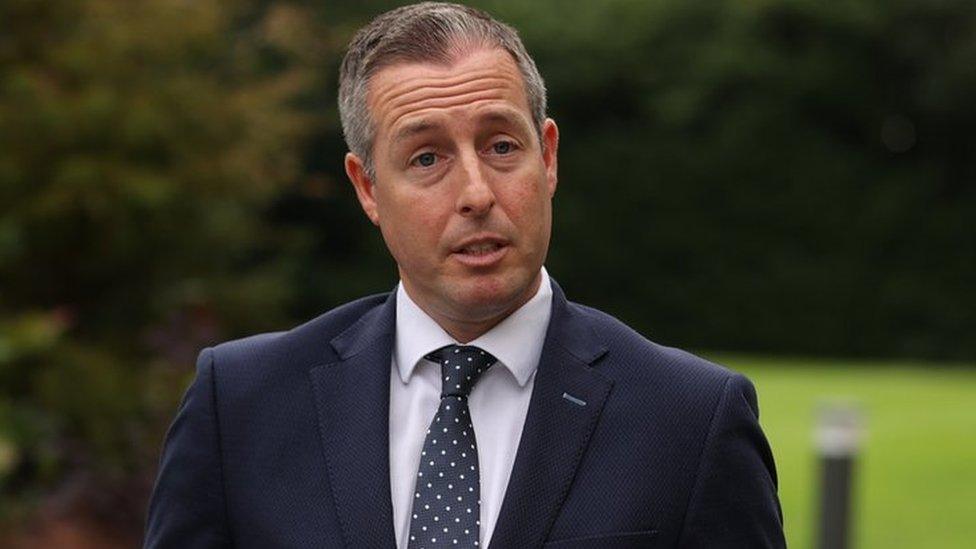
Paul Givan was appointed first minister just over eight months ago in June 2021
Paul Givan has stood down from his job - resigned - as first minister of Northern Ireland,
The move is part of the Democratic Unionist Party's (DUP) protest against part of the Brexit deal called the Northern Ireland Protocol.
Mr Givan's resignation automatically means Deputy First Minister Michelle O'Neill, of Sinn Féin, also loses her position, as one role cannot serve without the other.
Other ministers can remain in their jobs , but they cannot take any new decisions.
Why has this happened?
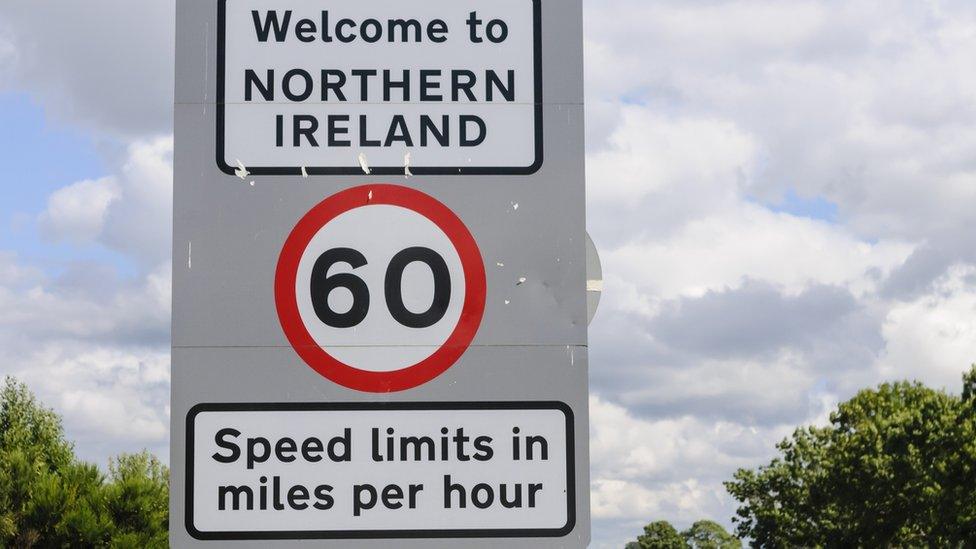
The border between Northern Ireland and the Republic of Ireland has been at the centre of Brexit negotiations
At the heart of the situation is unhappiness in some communities with the part of the agreement made between the UK and the European Union (EU) as a result of Brexit - the part called the Northern Ireland protocol.
That deal aimed to avoid border posts between Northern Ireland (which is part of the UK) and the Republic of Ireland (which is part of the EU).
That principle is a key part of the 1998 Good Friday Agreement which ended many years of violence in Northern Ireland. known as the Troubles.
The current Brexit deal means that while goods and people can move freely around inside the whole island of Ireland, some products need to be checked when they arrive in Northern Ireland instead of being checked when they move between Northern Ireland and the Republic of Ireland.
You may have heard some people referring to this as the 'Irish Sea border'.
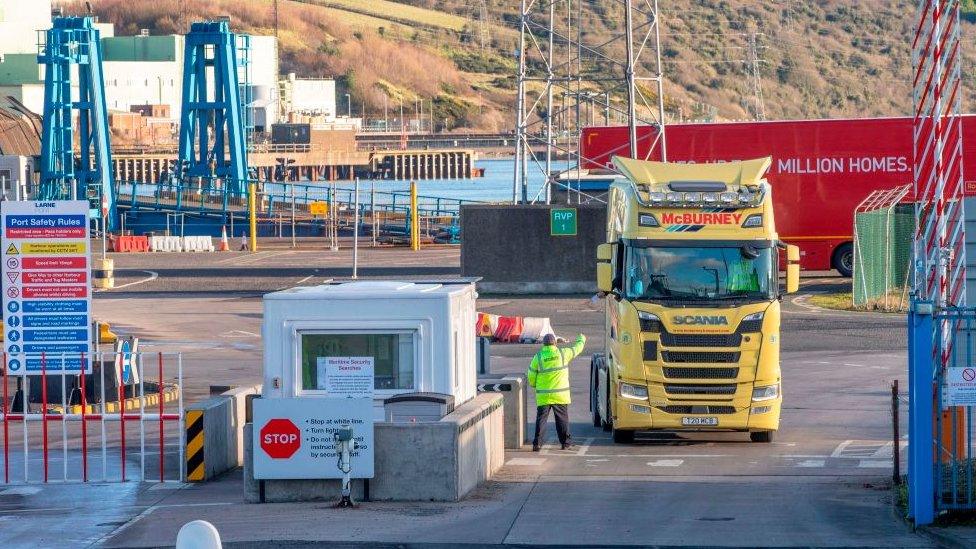
Despite voting for the overall Brexit deal, many politicians in the unionist community - including Mr Givan - have been very critical of the arrangements, saying they are damaging Northern Ireland's place in the UK.
They say that because Northern Ireland is part of the UK - just as there are no border checks between England, Scotland and Wales - there should be no border checks at all between Northern Ireland and other parts of the UK.
What happens next?

Neither Deputy First Minister Michelle O'Neill or First Minister Paul Givan can hold their office if the other resigns
Although the first minister and deputy first minister have left their jobs, the work of the Northern Ireland Assembly won't stop completely - other ministers will stay in their roles to oversee the work their department is doing.
However the move will prevent the Northern Ireland government from working properly - which could affect decisions around Covid restrictions, government spending and grants to help with energy bills .
Northern Ireland is due to have Assembly elections in May and there have been calls by some to bring those elections forward in the light of these events.
What have people said?
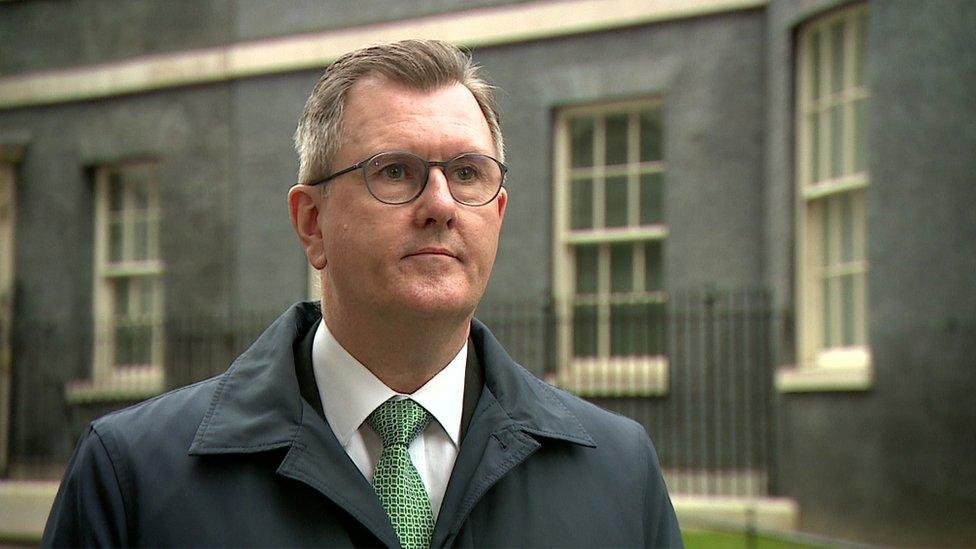
Sir Jeffrey has previously threatened to withdraw DUP ministers from the executive
Mr Givan is a member of the Democratic Unionist Party who's leader Sir Jeffrey Donaldson accused the UK government of not protecting "Northern Ireland's place within the UK".
"I warned that as leader of the DUP, I was not prepared to lend my hand to a protocol which so fundamentally undermines the union and the economic integrity of the United Kingdom and Northern Ireland's position in it."
Michelle O'Neill from the Sinn Féin party - who held the post of deputy first minister - said the actions of the DUP were an "act of harm towards wider society here".
Her party wants the elections due to take place in May to be brought forward.
"We had huge opportunity here in prioritising the health budget and the DUP... have walked away from all of that today and left such collateral damage behind them in terms of the wider community impact," she said.
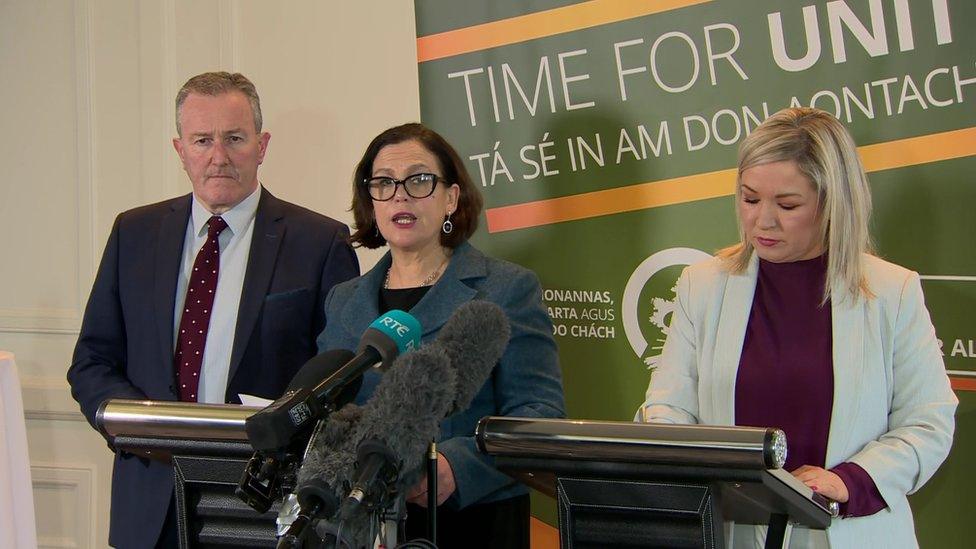
Sinn Féin president Mary Lou McDonald calls for an early assembly election if the NI Executive falls
Taoiseach (Irish prime minister) Micheál Martin said: "It is absolutely vital for peace and prosperity in Northern Ireland that the Executive is delivering for the people of Northern Ireland.
"I would urge the DUP to return to full engagement with all the institutions of the Good Friday Agreement and avoid any action that could damage peace and stability in Northern Ireland."
Northern Ireland Secretary Brandon Lewis who is based in Parliament in Westminster said the decision by the DUP was "extremely disappointing".
"I urge them to reinstate the first minister immediately to ensure the necessary delivery of public services for the citizens of Northern Ireland," he said.
